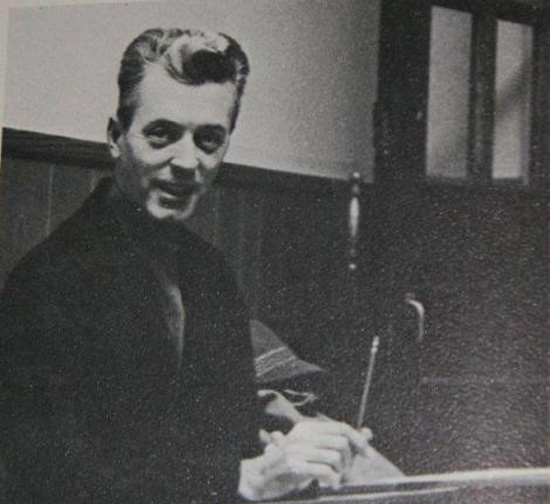It Is Giving that We Get
This is another of my Rogerian psychotherapy sessions. And, if you are wise, I’d recommend reading this and applying it to your lives. So, allow me to give you a short backstory. It was about this time of the year. I wasn’t quite ten years old, which was seventy years ago. I had a cousin, Brooks Oakford, but he went by Bud. He owned Aunt Charlotte’s, which made candy and ice cream. At the time, I had no idea why he reached out to me to help him at Aunt Charlotte’s before Christmas, but I missed his message. Besides, working at a candy store wasn’t working. It was paradise for a young kid.
Decades later, I got Bud’s message. He saw my potential and trusted me. He knew that I could work around candy-making equipment and not get hurt. The one job I loved the most was putting pretzels on a conveyor belt that would coat them with chocolate. Decades later, I returned to see Bud and thanked him for giving me that opportunity. He knew that I could handle it. He showed me the old coating machine that I used decades ago.

Bud was my first mentor. While I was at Muskingum College in the early 60s, Louie Palmer called me into his office at the end of my junior year. I had just taken a 10-hour art history class that students had to take in their junior or senior year. The class was called The Arts. Louie saw my ability level and asked me to be his teaching assistant during my senior year. I taught several subsections weekly. In addition, I wrote and graded the midterms and finals in both semesters during my senior year.

Even though I hadn’t even graduated from college, Louie reached out to me. He knew that I would do well as his teaching assistant. I loved that introduction to teaching. In the past quarter-century, I have taught many art history classes.
Bud and Louie reached out to me, and I learned critically important things about who I was and what I could do. I also learned from both mentors reaching out to others is essential. It is reciprocal also.

Carl Sagan helped create Cosmos: A Personal Voyage, on PBS in 1980. During one of the thirteen-part TV series, Sagan recounted a story about an old French aristocrat planning the landscaping around his new chateau. The aristocrat told his landscaper about a specific type of tree he wanted on his estate. The landscaper differed from the old aristocrat because that type of tree grew very slowly. It was the landscaper’s polite way of telling the old man that he would not be alive when that type of tree matures decades from then. The aristocrat’s response was to start planting immediately.
There is a logical disconnect in the Sagan parable. Even if the trees were planted, the old aristocrat would be long gone from this world by the time the trees mature. However, Sagan understood the parable. Sagan often told an old Greek proverb. “A society grows great when old men plant trees whose shade they know they shall never sit in.” That Greek saying rings loudly in my ears. Trust me.
After watching that part of the Cosmos series, I reached out to Sagan about some details about that program. It wasn’t a week later that I received a reply. In the grand scheme of things, one of the greatest astrophysicists reached out to someone he didn’t know.
Over my journey down the yellow road of my life, I have reached out to many people. I wrote to Cory Aquino, who brought democracy to the Philippines by removing Marcos in the mid-80s. Leo Buscaglia wrote many books, including The Fall of Freddy the Leaf. Charles Colson was the general counsel for Nixon and the first to go to prison due to Watergate, but he turned his life around while incarcerated. After being released from prison, he spent the rest of his life reaching out to prisoners. I also wrote to John Cleese, the famous British comedian. He was featured in a handful of Monty Python films. All those people replied to my reaching out to them. The only exception was Cleese. Instead of writing, he called me from London, because he wanted to talk to me.
I have also reached out to famous and not-so-famous people to interview. You might know some of them, like Dr. John Woods, Sen. Paul Simon, Studs Terrel, John Astin, Peter Jennings, Ron Magers, and Thubten Norbu. I have been interviewed twice at the NPR station in Chicago. I have also interviewed Than Tun Oo, my youngest daughter, Moh Moh, and my three granddaughters in Myanmar.
In conclusion, there is a problem with reaching out to others for help. Some won’t respond to you; they can’t be bothered. If I am amazed by the people who did respond to my reaching out to them, I am more amazed that some people didn’t respond. That is tragic. I just couldn’t believe that many merely ignored my request.
Enter my mantra. It is in giving that we get. The more we give, the more we get. When I fail to obtain help, I sit in front of my computer and vent. Then I go to bed, get up the next morning, and resume my quest. My wanting help wasn’t to obtain wealth or things. My drive is to help others. The more I help them, the better I feel. It may sound like an oxymoron, but it isn’t. I grasp what the bridgebuilder felt.

This chasm that has been as naught to me to that fair-haired youth may a pitfall be
The Bridge Builder
Will Allen Dromgoole
An old man going a lone highway,
Came, at the evening cold and gray,
To a chasm vast and deep and wide.
Through which was flowing a sullen tide
The old man crossed in the twilight dim,
The sullen stream had no fear for him;
But he turned when safe on the other side
And built a bridge to span the tide.
“Old man,” said a fellow pilgrim near,
“You are wasting your strength with building here;
Your journey will end with the ending day,
You never again will pass this way;
You’ve crossed the chasm, deep and wide,
Why build this bridge at evening tide?”
The builder lifted his old gray head;
“Good friend, in the path I have come,” he said,
“There followed after me today,
A youth whose feet must pass this way.
This chasm that has been as naught to me
To that fair-haired youth may a pitfall be;
He, too, must cross in the twilight dim;
Good friend, I am building this bridge for him!”
Remember, it is in giving that we get.









